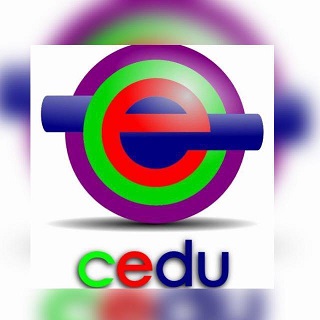READING PRACTICES OF STUDENTS COMPLETING THE ACCOUNTING SCIENCES COURSE, CLASS 2015.1, OF THE STATE UNIVERSITY OF THE SOUTHWEST OF BAHIA: THE MAIN SOURCES OF READING OF THE STUDENTS AND THE TIME DEDICATED TO THE HABIT OF READING
Mots-clés :
Accounting, Accounting education, ReadingRésumé
This paper aims to identify the main reading sources of students and the time devoted to their reading habits. The problem investigated was as follows: How do students who are able to study CBT maintain the reading habit? The justification of this work is because it is a reality experienced by many university students who face difficulties in academic life due to the lack of reading habits. In addition, the reading habit must be present in the life of the future accountant so that the accountant remains well informed, dynamic and able to provide information essential to business decision making. To answer the problem question, predominantly qualitative research was used, with data collection obtained through a mixed questionnaire applied to the future graduates of the class 2015.1 and also the bibliographic research was used. The results showed that students read little, prioritize the internet as the main means of access to information and do not believe that the reading habit developed throughout the course is sufficient for the development of the monograph.
Téléchargements
Références
APOLINÁRIO, Fábio. Dicionário de Metodologia Científica: um guia para a produção do Conhecimento Científico. 2ª ed. São Paulo: Atlas, 2011.
BARDIN, L. Análise de Conteúdo. São Paulo: Edições 70, 2011.
BARROS, M. Contabilidade Geral. [Apostila digital]. Fundação Sérgio Contente. IDEPAC, 2013. < http://197.249.65.74:8080/biblioteca/bitstream/123456789/421/1/apostila-de-contabilidade-mauricio-barros.pdf> .Acesso em 21 de setembro de 2018.
BRASIL. Ministério da Educação - Secretaria de Educação Fundamental.Parâmetros Curriculares Nacionais: Língua Portuguesa. Brasília: MEC/SEF, 1997. Disponível em: <http://portal.mec.gov.br/seb/arquivos/pdf/livro02.pdf>. Acesso em: 15 de novembro de 2018.
CUNHA, S.H.M. Práticas de leitura na cultura digital: pensando o aprendizado da leitura no ensino superior. Dissertação em Letras. Programa de Pós-Graduação em Letras– Mestrado, Universidade de Santa Cruz do Sul. < https://repositorio.unisc.br/jspui/handle/11624/215> Acesso em: 11 de abril de 2019.
DALLABONA, L.; VUOLO, D.; PLETSCH, C. Compreensibilidade de leitura dos estudantes de ciências contábeis por meio da técnica cloze. Revista Contabilidade Vista & Revista, v. 29, n. 1, p.01-27, jan./abr. 2018.
FRANCO, H. Contabilidade Geral. 23 ed. Ed. Atlas: São Paulo, 1997. p. 21.
FRANCO, J.R; SILVA, N.V. Habilidade essencial no ensino superior.pdf. Disponível em: http://www.atenas.edu.br:80/faculdade/arquivos/NucleoIniciacaoCiencia/RevistaCientifica/RREVISTA CIENTIFICA 2010. In: https://pt.scribd.com/document/158511072/14-Habilidade-Essencial-No-Ensino-Superior. Acesso em: 30 de novembro de 2018.
FERREIRA, M.R. A importância da leitura no Ensino Superior. Disponível em: http://www.unisalesiano.edu.br/biblioteca/monografias/48999.pdf. Acesso em: 11 de novembro de 2018.
FERREIRA, N. S. de A. As pesquisas denominadas "estado da arte". Educ. Soc. [online]. 2002, vol.23, n.79, pp.257-272. ISSN 0101-7330. Disponível em http://dx.doi.org/10.1590/S0101-7330200200030001 Acesso em 01 de fevereiro de 2019.
GIL, A. C. Como Elaborar Projetos de Pesquisa. 4. ed. São Paulo: Atlas, 2002.
MARTINS, Maria Helena. O que é leitura. 19. ed. São Paulo: Brasiliense, 1994, p.25.
INSTITUTO BRASILEIRO DE GEOGRAFIA E ESTATÍSTICA. Cidades e estados. Disponível em: <https://www.ibge.gov.br/cidades-e-estados/ba/vitoria-da-conquista.html>. Acesso em: 10 de novembro de 2018.
IUDÍCIBUS, S. Teoria da contabilidade. 9 ed. São Paulo: Atlas, 2009.
KOCH, I; ELIAS,V.M . Ler e Escrever: Estratégias de Produção Textual. Editora Contexto, 2009.
LAKATOS, E.M.; MARCONI, M.A. Técnicas de Pesquisa. São Paulo: Atlas, 2008.
MARION, J.C. A Contabilidade e o contador. In: MARION, José Carlos. Contabilidade empresarial. 11. ed. rev. e atual e mod. São Paulo: Atlas, 2005. Cap. 1, p. 23-38.
_____________. Contabilidade. In: MARION, José Carlos. Contabilidade básica. 10. ed. Atualiz. conforme a Lei 11.638/07, MP nº 449/08 (Lei nº 11.941/09) e Pronunciamentos do CPC (Comitê de Pronunciamentos Contábeis). São Paulo: Atlas, 2009. Cap. 1, p. 27-35.
OLIVEIRA, C.R.; KOYAMA, C.M.; SILVA, D.C. O despertar do interesse pela leitura e pela escrita, nos estudantes do curso de Ciências Contábeis da Universidade Estadual de Londrina, no discorrer da graduação. Disponível em: http://www.uel.br/revistas/uel/index.php/rec/article/view/12194. Acesso em: 22 de novembro de 2018.
PARÂMETROS CURRICULARES NACIONAIS, 2001.
SAMPAIO, I.S. e SANTOS, A.A.A. Leitura e redação entre universitários: avaliação de um programa de intervenção. Disponível em: <http://www.scielo.br/scielo.php?script=sci_arttext&pid=S1413-73722002000100006> Acesso em 11 de fevereiro de 2018.
SANTANA, H.S. Hábito de leitura dos alunos do curso de Ciências Contábeis da Universidade Estadual de Feira de Santana – UEFS. Disponível em: <http://www.reacfat.com.br/index.php/reac/article/view/178> Acesso em: 04 de novembro de 2018.
SÁ, A, L; SÁ, A. M. L. Dicionário de contabilidade. 10. ed. São Paulo: Atlas, 2005.
SÁ, A. L. Ética profissional. 4. ed. São Paulo: Atlas, 2001.
SILVA, A. C. R. de. Metodologia da pesquisa aplicada à Contabilidade: orientações de estudos, projetos, relatórios, monografias, dissertações, teses. – São Paulo: Atlas, 2010.
SOUZA, W. P. As principais contribuições da Iniciação Científica para a formação acadêmica e profissional em Ciências Contábeis: um estudo na Universidade Estadual do Sudoeste da Bahia, na ótica dos egressos de 2013.2. Disponível em http://www2.uesb.br/cursos/contabeis/?page_id=188 acesso em 19 de outubro de 2021.
TOBIAS, L. M. M. O perfil do profissional de Contabilidade à luz das demandas de mercado. In: XIX ENCONTRO ANUAL DE INSCRIÇÃO CIENTÍFICA, 2010. Disponível em: < https://periodicoscientificos.ufmt.br/ojs/index.php/rcic/issue/view/611 >. Acesso em: 18 de outubro de 2018.
ZILBERMAN, Regina. Pedagogia da leitura: movimento e história. In: ZILBERMAN, Regina; SILVA, Ezequiel Theodoro da (Org.). Leitura: perspectivas interdisciplinares. São Paulo: Ática, 1998. p.111-115.
Téléchargements
Publié-e
Comment citer
Numéro
Rubrique
Licence
Droits d'auteur
La soumission des originaux à Cenas Educacionais (CEDU) implique le transfert, par les auteurs, des droits de publication. Le copyright des manuscrits publiés dans cette revue est le ou les auteurs, avec les droits CEDU sur la première publication. Les auteurs ne peuvent utiliser les mêmes résultats dans d'autres publications qu'en indiquant explicitement la CEDU comme moyen de publication originale.
Licence Creative Commons
Sauf indication contraire, les termes d'une licence Creative Commons Attribution-ShareAlike 4.0 International License s'appliquent au matériel publié dans ce journal, ce qui permet une utilisation, une distribution et une reproduction sans restriction sur tout support à condition que la publication originale soit correctement citée.






 Esta obra está licenciada com uma Licença
Esta obra está licenciada com uma Licença 